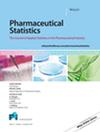在疫苗疗效临床试验中动态借用历史对照组调整协变量
IF 1.3
4区 医学
Q4 PHARMACOLOGY & PHARMACY
引用次数: 0
摘要
传统的疫苗疗效试验通常采用固定设计,通常需要大量样本。招募大量受试者会使试验变得昂贵、漫长且难以进行。减少样本量并加快研发速度的一种可行方法是使用历史对照。在本文中,我们扩展了稳健混合先验(RMP)方法(一种成熟的贝叶斯动态借用历史对照的方法),以调整协变量。调整使用的是因果推断的经典方法:逆概率处理加权、G 计算和双稳健估计。我们通过一项综合模拟研究对这些协变量调整后的 RMP 方法进行了评估,并通过对预防性人类乳头瘤病毒疫苗疗效试验进行回顾性分析来展示这些方法的应用。对协变量的调整减少了当前对照和历史对照之间的漂移,对偏差、I 型误差控制和功率都有好处。本文章由计算机程序翻译,如有差异,请以英文原文为准。
Dynamic borrowing of historical controls adjusting for covariates in vaccine efficacy clinical trials
Traditional vaccine efficacy trials usually use fixed designs and often require large sample sizes. Recruiting a large number of subjects can make the trial expensive, long, and difficult to conduct. A possible approach to reduce the sample size and speed up the development is to use historical controls. In this paper, we extend the robust mixture prior (RMP) approach (a well established approach for Bayesian dynamic borrowing of historical controls) to adjust for covariates. The adjustment is done using classical methods from causal inference: inverse probability of treatment weighting, G‐computation and double‐robust estimation. We evaluate these covariate‐adjusted RMP approaches using a comprehensive simulation study and demonstrate their use by performing a retrospective analysis of a prophylactic human papillomavirus vaccine efficacy trial. Adjusting for covariates reduces the drift between current and historical controls, with a beneficial effect on bias, control of type I error and power.
求助全文
通过发布文献求助,成功后即可免费获取论文全文。
去求助
来源期刊

Pharmaceutical Statistics
医学-统计学与概率论
CiteScore
2.70
自引率
6.70%
发文量
90
审稿时长
6-12 weeks
期刊介绍:
Pharmaceutical Statistics is an industry-led initiative, tackling real problems in statistical applications. The Journal publishes papers that share experiences in the practical application of statistics within the pharmaceutical industry. It covers all aspects of pharmaceutical statistical applications from discovery, through pre-clinical development, clinical development, post-marketing surveillance, consumer health, production, epidemiology, and health economics.
The Journal is both international and multidisciplinary. It includes high quality practical papers, case studies and review papers.
 求助内容:
求助内容: 应助结果提醒方式:
应助结果提醒方式:


